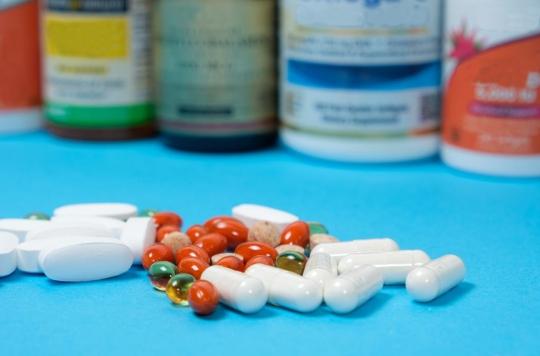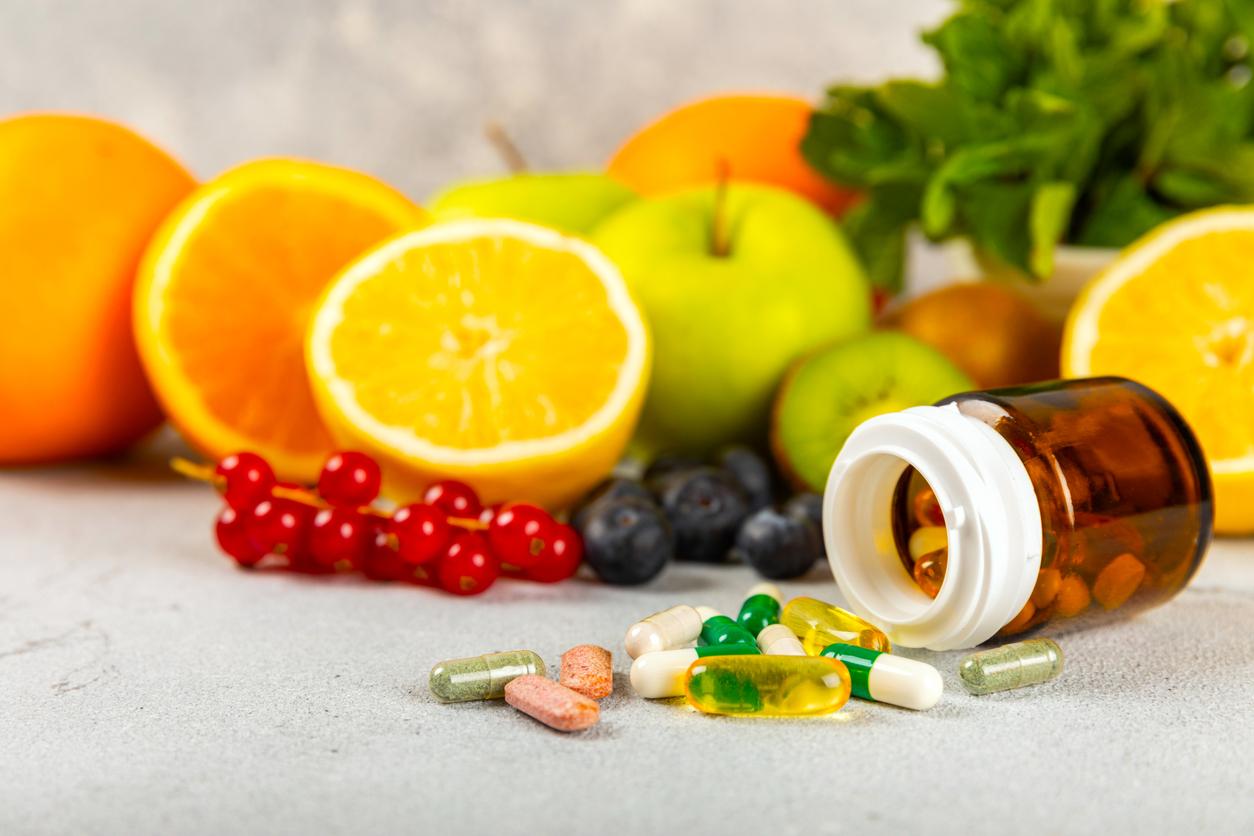In the United Kingdom, a man was hospitalized following an overdose of vitamin D taken in the form of food supplements.

- Vitamin D increases the concentrations of calcium and phosphorus in the blood. Excess vitamin D can generate excess calcium in the blood.
- Vitamin D, essential for the proper functioning of the body, is provided by food (fatty fish, dark chocolate, eggs, etc.) or synthesized through exposure to the sun.
In small doses, it is considered good for health, especially in case of deficiencies. But the abuse of dietary supplements can have disastrous consequences on health. A man not looking at official recommendations has just paid the price, tells the British Medical Journal.
35 times the recommended dose of vitamin D
Cared for at Cardiff Hospital in the United Kingdom, the middle-aged patient was taking more than twenty different dietary supplements, including vitamins D, K, C, B2, B9 and B6, but also all kinds of minerals and probiotics (omega-3, zinc, magnesium, taurine…).
Why not, but the problem is that he consumed them all at doses well above those recommended by the health authorities. To cite just one example: he swallowed the vitamin D equivalent of 15,000 IU daily, when the daily amount is… 400 IU for an adult. That’s more than 35 times the recommended dose! A cocktail of supplements that his body, already weakened by previous illnesses and severe infections, did not support.
12 pounds lost
When he arrived at the hospital, the man had already been suffering from vomiting, abdominal pain, diarrhea, dry mouth and abnormal weight loss (12 kg) for 3 months. Medical tests have revealed hypocalcemia (an excess of calcium in the blood), a surplus of creatinine which suggests kidney failure, or even a vitamin D level seven times higher than the amount required for the human body to function. After eight days of hospitalization and treatment, the man was able to return home under medical supervision.
Vitamin D overdose is rare, but not impossible, especially in children. To prevent risks, the National Medicines Agency asks health professionals and parents to favor drugs over food supplements, to control the doses administered, or not to multiply products containing vitamin D.


















